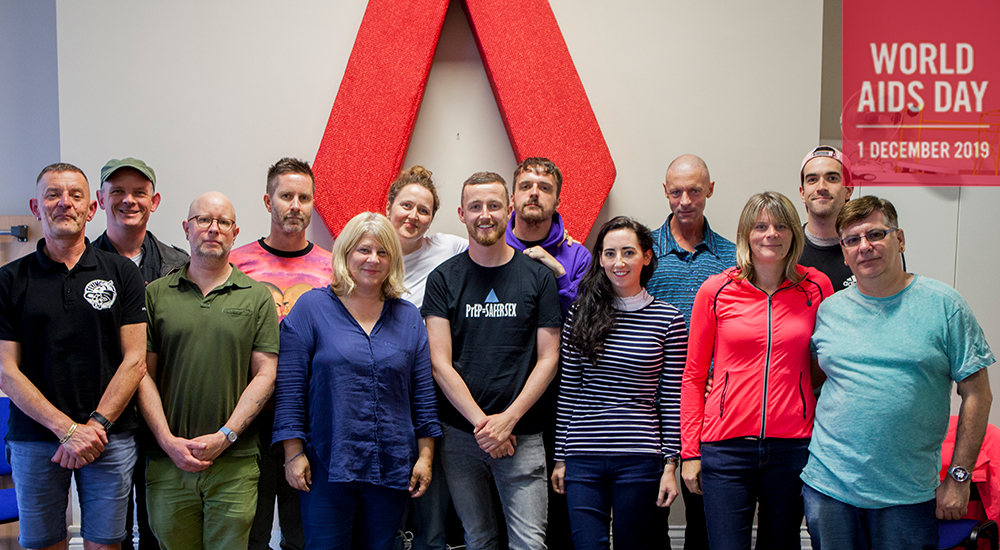It has been 37 years since AIDS was first diagnosed in Ireland and 31 years since the first-ever World AIDS Day. Jim Bunn came up with the idea for World AIDS Day with Thomas Netter while they were working as public information officers for WHO.
In the first few years of the commemorative day, homosexuality was still illegal in Ireland and the stigmas attached to the AIDS crisis were affecting people’s access to credible information about the disease.
Mainstream media coverage of the disease was very limited in the 1980s and ’90s. Most of the time when it did receive the coverage it was scaremongering, spin doctor type stories. In 1985, The Nationalist and Leinster Times even went so far as to suggest that it was “not AIDS, but homosexuality that was the killer disease”.
Although a lot of the stigma came from homophobia, a lot also came from fear and this was only compounded with what they were hearing in the media. Everything was very focused on the cause and not the solution, how to protect yourself against the disease was rarely discussed. In Ireland, it was still very taboo to publicly speak about sex in any way.
To combat this, LGBT+ groups were instrumental in providing accurate information about the disease during this time. The first information leaflet was created by the Gay Health Action group in 1985. Another important publication at this time was OUT magazine, Ireland’s first commercial queer publication. Thanks to these subversive publications, information acted as an anecdote: a medicine that didn’t need Government approval.
Communities make the difference
The theme of this year’s World AIDS Day is “Communities make the difference”.
Communities contribute to the AIDS response in many different ways. Their leadership and advocacy ensure that the response remains relevant and grounded, keeping people at the centre and leaving no one behind. Communities include peer educators, networks of people living with or affected by HIV, such as gay men and other men who have sex with men, people who inject drugs and sex workers, women and young people, counsellors, community health workers, door-to-door service providers, civil society organizations and grass-roots activists.
In Ireland, the future if HIV prevention is very much seen as a community-led venture.
At last year’s World AIDS Day event, Professor Mulcahy spoke about how she sees the future of HIV prevention being at the centre of community-led initiatives:
“I think my role will diminish and the roles of the hospitals will diminish. I think where the future is, is in the community. So if I was to ask the community to do anything, it would be to set up more testing. I think they will take over dispensing PrEP, I think they will take over PEP.
“I think it will be programmed, I’ll be happy to drive it. When people want things to be kept in a hospital that’s because they want to keep their own importance and they want to create a mystique around treatment. Is patients are well, that does not need to happen. A lot of the European countries, Germany and even Russia are now looking at the communities to develop community-based programmes.”
© 2019 GCN (Gay Community News). All rights reserved.
Support GCN
GCN is a free, vital resource for Ireland’s LGBTQ+ community since 1988.
GCN is a trading name of National LGBT Federation CLG, a registered charity - Charity Number: 20034580.
GCN relies on the generous support of the community and allies to sustain the crucial work that we do. Producing GCN is costly, and, in an industry which has been hugely impacted by rising costs, we need your support to help sustain and grow this vital resource.
Supporting GCN for as little as €1.99 per month will help us continue our work as Ireland’s free, independent LGBTQ+ media.
